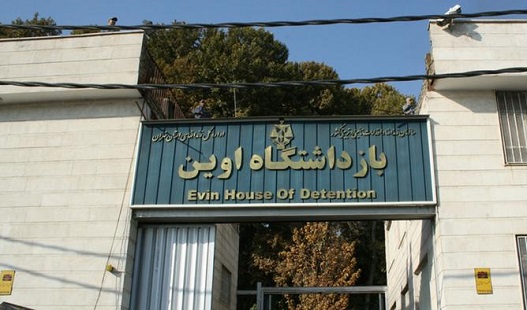iranintl – The Campaign to Free Political Prisoners in Iran (CFPPI) says use of pharmacological torture against political prisoners has increased alarmingly in the past year.
The Canada-based non-profit has urged the international community to investigate this type of torture and deaths resulting from it in Iran. “The Islamic regime in Iran must be held accountable for its crimes against political prisoners,” a recent report by CFPPI, said.
Pharmacological torture is the use of psychoactive, psychotropic drugs or other types of drugs to punish, extract information, or to subdue prisoners into compliance by causing distress in the form of pain, anxiety, panic, psychological disturbances, immobilization, hallucination, paranoia, disorientation, and addiction without leaving obvious physical signs of violence.
CFPPI has said in its report that it conducted extensive investigations that indicated an alarming increase in the use of pharmacological torture in Iran in the past five year and particularly since Women, Life, Freedom protests that began in late September 2022. Their findings draw on testimonies of those arrested during the protests of 2022-2023 as well as on the accounts of former political prisoners.
According to CFPPI’s report, the regime has intentionally and systematically subjected more political prisoners to pharmacological torture by sending detainees to mental hospitals and forcibly administering anti-psychotic drugs at multiple prisons across the country, as well as by mixing drugs into their food and drinks.
“Whereas formerly, prison guards would offer sedatives to prisoners, which many of the younger and newer prisoners voluntarily accepted to ease their experience, new reports suggest that since September 2022 the practice has changed to violent and coercive administering of unwanted drugs,” the report said.
One of the victims interviewed for the report, a 27-year-old woman who said she had been raped several times during her detention, told CFPPI that she was forced into taking unidentified pills which had a profound impact on her, leading to psychotic episodes. After her release from prison, she attempted to take her own life and lost one of her kidneys.
Prisoners say they have also noted serious pains and aches in the absence of the drugs.
Dissident rapper Saman Seydi (Yasin) is among political prisoners who have spoken up about their tortures including administration of unidentified pills and injections at a very high cost. He has been sentenced to death and is still in prison.
Yasin was held at a mental hospital on the orders of the notorious judge Abolghasem Salavati for four days as punishment for smuggling out an audio file from Tehran’s Evin Prison in which he described tortures including being subjected to mock execution.
At the mental hospital where he was tied to the bed, security forces beat him for refusing to allow them to inject him with an unknown substance. Yasin claims he fell unconscious for 24 hours after the injection and has been having problems with his eyesight and balance since then.
Yasin’s torturers, he says, wanted to force him to “confess” to possession and use of a firearm during last year’s protests.
In several other cases in the past year, detainees including young protesters have died soon after their release from prison under suspicious circumstances.
Pressure on victims’ families to accept “suicide”, “sudden death”, or “overdose” as cause of death of individuals with no prior record of major health problems, depression or addiction has raised suspicions that the deaths may have resulted from pharmacological torture.
“Pharmacological torture is extremely distressing and punitive as it causes severe physical pain, harmful and painful physiological changes, confusion, perceptual abnormalities, fearfulness and anxiety, lethargy, and loss of personal agency,” William Hopkins, Consultant Psychiatrist at Freedom from Torture who has worked to rehabilitate survivors of pharmacological torture from various countries is quoted by the report as saying.
 Shabtabnews In this dark night, I have lost my way – Arise from a corner, oh you the star of guidance.
Shabtabnews In this dark night, I have lost my way – Arise from a corner, oh you the star of guidance.



